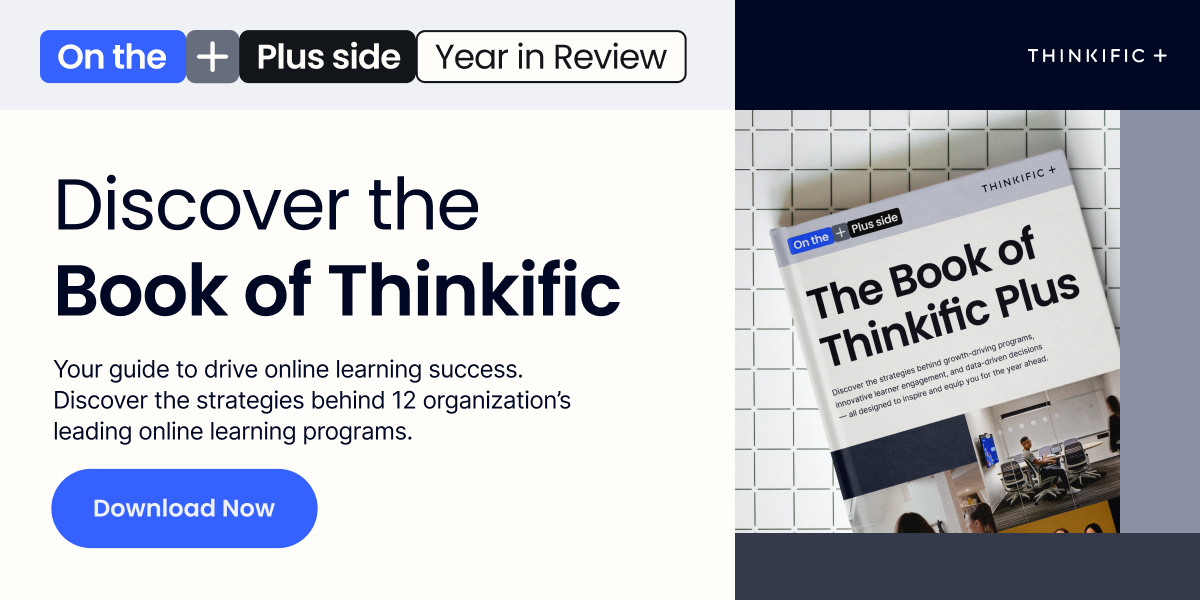To scale your business beyond your current resources and team, you need partnerships. And in order to have successful partnerships, you need partner training. Whether you’re selling or providing services through affiliates, value-added resellers (VARs), or indirect (third-party) sellers or service providers, you can’t expect partners to successfully promote your products and deliver services unless you properly educate them.
Failing to provide proper partner training to properly guide and engage your channel partners results in lost sales opportunities and shorter customer lifecycles. So how can you ensure your partners get the most out of the training?
Continue reading to learn everything you need to know about partner training. We’ll cover topics like what to include in your training program and how to measure its effectiveness. Plus, we’ll provide tips on how to keep your partners engaged and motivated throughout the process.
Skip ahead:
-
What Is Partner Training and Why Is It Important for businesses and organizations?
Choosing the Right Type of Partner Training for Your Business
Tips for Implementing and Getting the Most Out of Your Partner Training Program
What Is Partner Training and Why Is It Important for businesses and organizations?
A channel partner is a company or individual that resells or promotes your products or services. With the help of a learning management system (LMS), you can provide partner training that covers everything from product knowledge to sales skills.
Partner training is worth the investment because strong partnerships allow you to reach more potential customers and grow your customer base faster. In addition to gaining access to new markets and channels you might not have access to, channel partners are often more cost-effective than relying solely on your own marketing and sales efforts.
Partner training ensures that your channel partners are knowledgeable about your products and services, allowing you to feel confident in them serving as an additional face of your brand. Investing in training builds relationships between you and your channel partners, which motivates them to sell more of your product and deliver a higher quality service.
Some of the most common ways to train channel partners are through online courses or webinars. Online learning has several advantages, including tracking progress and ensuring that partners remain engaged with the material. Furthermore, it provides a cost-effective way to train since it’s a one-to-many solution versus one-to-one training sessions.
Your Partner Training Options
The format of your channel partner training will depend on your industry, team size, budget, and resources. If your industry is competitive, you will need closer relationships with your partners, so investing in ongoing training will benefit your business.
Remote training
The most scalable way to train your partners is by using a learning management system (LMS). Remote training allows channel partners to access online courses they can consume at their own convenience.
Since you can easily update your LMS materials, remote training ensures that partners stay up-to-date on the latest product information and changes. Channel partner training via LMS is flexible and convenient for both parties and can be adapted to fit a variety of schedules and learning styles.
On-site training
Another common channel partner training strategy is classroom-based training. This training takes place on-site and usually involves channel partners spending several days or weeks learning about the product or service. On-site learning is an effective way to provide in-depth product knowledge and build face-to-face rapport with partners.
By carefully selecting the right type of channel partner training, you’ll provide an easier way to communicate, increase product knowledge, and build profitable relationships with your channel partners.
Choosing the Right Type of Partner Training for Your Business
One size does not fit all when it comes to channel partner training. To ensure that your partners are getting the most out of their training, it’s important to select a learning management system (LMS) that fits the specific needs of your business model.
Here are a few factors to consider when choosing an LMS for channel partner training:
-
Scale: How many channel partners do you have? If you have a large number of partners, your LMS must be able to accommodate all of your users.
-
Training requirements: What type of training do your channel partners need? All channel partner training sessions will involve some element of audio, video, and text-based material. Your training may also have a testing component to complete before users move on to the next module, so make sure your platform has those controls.
-
Integration: Does the LMS integrate with your existing systems? Make sure that the LMS you choose can easily integrate with your CRM, ERP, and other systems.
-
Support: Does the LMS vendor offer customer support? You’ll want to make sure that you can get help from the LMS provider if you or your users run into tech issues.
Tips for Implementing and Getting the Most Out of Your Partner Training Program
A channel partner program will help expand your reach into new geographies while reducing the cost and time it takes to market and sell your products and services. Therefore, it’s worth it to do the up-front planning to create a robust training program.
When implementing a partner training program, keep these tips in mind:
Create a plan for your channel partner training program
First and foremost, it’s essential to have a clear channel partner strategy. This will ensure that your program aligns with your overall business goals. Outline the criteria for partnership. What types of businesses are you looking to partner with? What are the requirements for a strong partnership?
Select the right training platform based on your needs
Once you have a strategy in place, you’ll need to select the right learning management system (LMS). There are a variety of LMS platforms on the market, so it’s important to choose one that will fit the needs of your partners.
Develop your interactive, engaging training materials
Once you have your LMS in place, you can begin to develop your partner training programs. It’s important to create engaging and interactive programs, as this will help partners retain the information they learn. This should include product training, marketing training, and sales training. Make sure you tailor your training to each partner’s needs and interests.
Measure the ROI of your training programs
Define your goals and objectives. What do you hope to achieve with your channel partner program? What are your key performance indicators (KPIs)? Don’t forget to measure the results of your programs. By tracking key metrics, you’ll be able to continuously improve your partner training programs and ensure that they provide value for your business.
The Bottom Line on Training Your Channel Partners to Successfully Sell and Deliver Your Products and Services
Your business or organization’s partners need adequate training if they’re going to be successful in selling your products and delivering your services. Your training curriculum should cover everything from product overviews to tutorials and sales techniques.
Make sure you provide enough training so that partners feel confident selling your products and services. And don’t forget to update the curriculum as your products and services evolve.
An LMS is a great way to provide your partners with all the resources they need to succeed. The portal should include product information, training materials, sales tools, marketing collateral, and more. With the right online learning platform in place, you can train your partners effectively and help them sell more products– boosting your bottom line.
Grow Your Business with Online Learning
Looking to drive revenue and fuel business growth?
The Book of Thinkific Plus is your ultimate playbook, featuring 12 real-world success stories—one for each month of the year. Dive into proven strategies from organizations that have successfully scaled online learning to achieve big results.
Download your free copy today and discover the strategies that work!
Ready to transform your business with online learning?
Thinkific Plus gives you the tools and support to create scalable, revenue-driving education programs tailored to your business goals.
Have questions or want to see how Thinkific Plus can work for you?
Get in touch with our team today and let’s build your success together!






